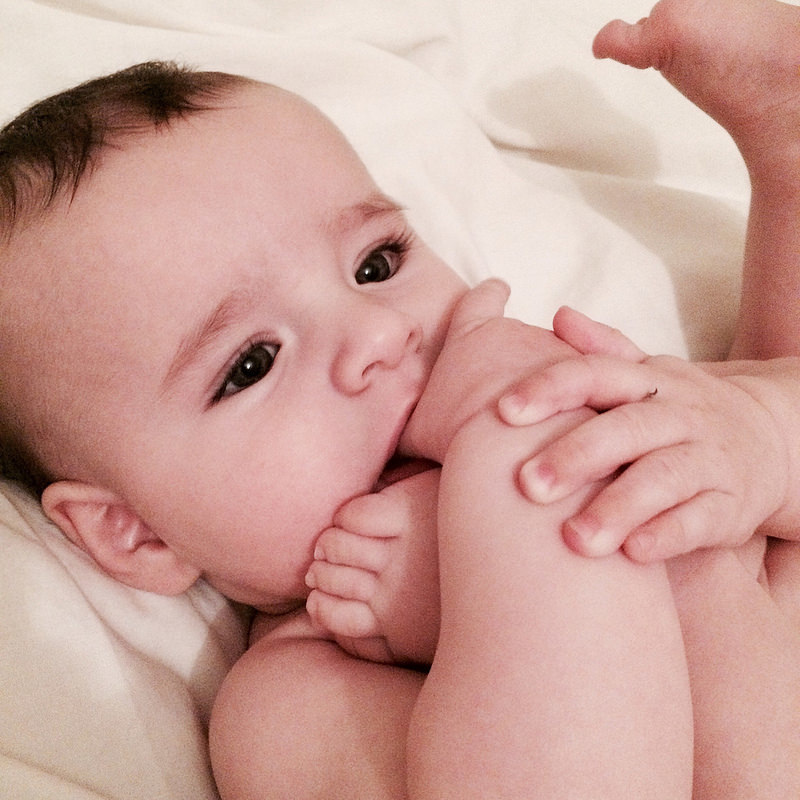Top 10 To Do List To Help Babies Learn to Talk:Number 1Babies learn about talking and listening through play, so it's important to set aside time to play with your baby each day. Number 2Imitate your babies sounds. Watch your baby and copy their actions and sounds. Do this immediately after your baby has made a sound. Make this into a fun game you play everyday. Reward your baby if he/she imitates the sound back by showing them you're excited they copied you (e.g. smile, cuddle, comment "clever talking"). Number 3Take turns making sounds and playing. Pause to listen and speak just like you would in an adult conversation. Copy their actions and sounds and then wait for them to try to copy you or make a different noise or action. Number 4Talk to your baby often, get face to face with them speaking slowly, clearly and simply. Babies love to watch their parents faces and this is great for encouraging sound play, language development and early social interaction skills. Number 5Lots and lots of sound play. Play games and activities that encourages lots of sounds. Watch and listen to your baby to see what activities he/she likes to make sounds during. What sounds does he/she like to make? Are there certain times of the day he/she likes to make sounds (e.g. bathtime, mealtimes, waking up time)? Use these times to join in making sounds and modelling how to make different sounds. Number 6Use exciting toys, books and games to encourage making sounds. Toys that have a 'surprise' or books that are colourful with tags, flaps and crinkley fabric they can play with are most likely to make your child vocalise (e.g. Jack in the Box, Pop Up Farm Toy). You can choose key words to model repeatedly that your baby will enjoy listening to, learning and might try to copy (e.g. open, pop, peek-a-boo Jack). Number 7Mirror time is great! Babies often love making sounds in front of a mirror with mum or dad. Sit in front of a mirror together and make silly faces and noises together. Number 8Sing songs and nursery rhymes together everyday. Singing the same words over and over again will help your baby learn language and rhythm. Try singing to your baby in babble sounds and nonsense sounds (e.g. la la la, da da da, na na na, MMmmm) and see what he/she does. Encourage your baby to join in by smiling, clapping or praising any of his/her attempts. Number 9Introduce new sounds once your baby is able to take turns producing a single sound (e.g. baba). You can encourage your baby to copy a new sound (e.g. mama). You might focus on a sound your think they might be starting to try to make (e.g. Mmm) or introduce a sound they aren't making yet (e.g. gaga) Number 10'Use lots of sounds during play. These don't have to be real words, they can be made up sounds or easy words like an animal noise. 'Play sounds' catch a baby's attention, are easier to understand and are often easier to imitate than real words. Examples you could try are: wee - when pushing on a swing. pop - when popping bubbles moo, baa, neigh, woof - animal noises when playing with toy animals Brrrmm brrmm - when pushing a toy car to each other ha ha ha - when patting panting dog Grrr - when pretending to be a lion Mmmm - when eating something nice raspberry blowing - when pretending to be a horse or playing with toy horse wee - when lifting up high eeow - when flying toy plane or pretending to be a plane oh oh - when drop something toot toot - when playing with toy truck or watching real truck go past Written By Sarah Creagh, Speech Pathologist.References Used:Speech and Language Developmental Milestones - NIDCD
www.nidcd.nih.gov Child Development Milestones - 6 months - Queensland Government www.health.qld.gov.au 'Early Communication Skills' Handout, Speech Pathology Department, Priness Margaret Hospital Helping Your Baby To Talk, Speech Pathology Australia www.speechpathologyaustralia.org.au |
Author - Sarah CreaghI'm a speech pathologist with a passion for working in partnership with parents to support children to reach their maximum potential. Archives
September 2018
Categories
All
|



 RSS Feed
RSS Feed

